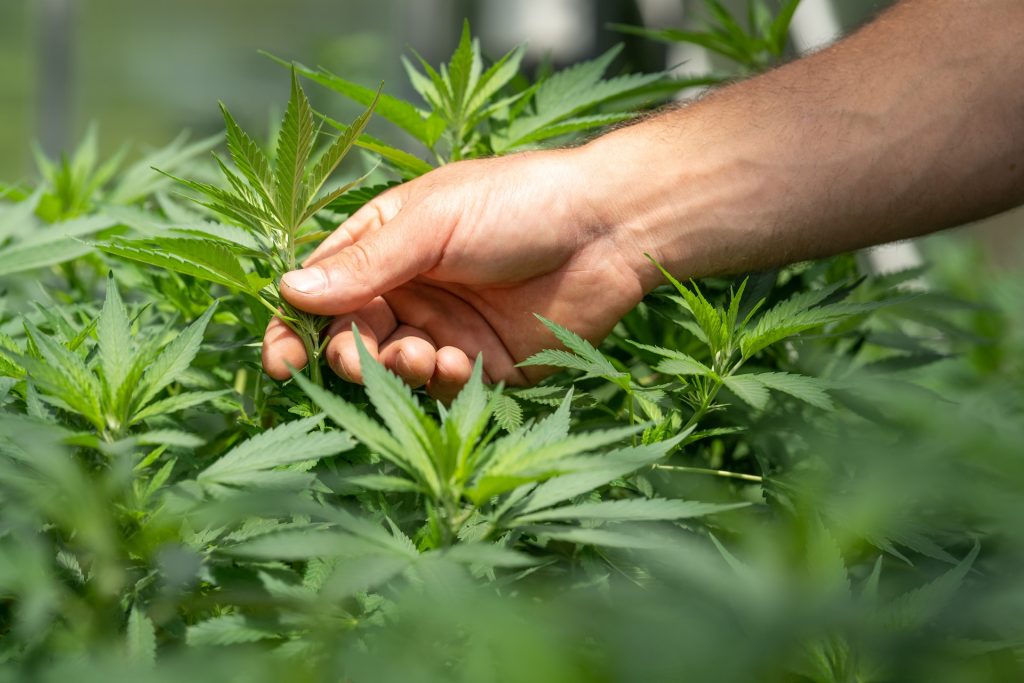A recent study in Canada found that 92% of illegal cannabis samples in Canada contained pesticides, while only 6% of legal cannabis samples tested positive for pesticides. The study, one of the few of its kind, supports the Government of Canada’s warnings about the potential harmful effects of consuming illegal cannabis, including contamination by pesticides and other harmful substances.
92% of Illegal Cannabis in Canada Contains Pesticides, Study Finds


A recent study published in the Journal of Cannabis Research has shed light on the widespread presence of pesticides in both illegal and legal cannabis in Canada.
Research Methodology and Findings
In the paper titled “High Levels of Pesticides Found in Illicit Cannabis Inflorescence Compared to Licensed Samples in Canadian Study Using Expanded 327 Pesticides Multiresidue Method,” researchers compared 36 cannabis samples from authorized dispensaries and 24 from illegal commerce. These illegal samples had been seized by law enforcement and were submitted to Health Canada for laboratory testing in 2021.
The researchers searched for traces of 327 different pesticides in the samples and found that a large number of illegal cannabis samples contained harmful chemicals.
For more news like this, download our free cannabis news app.
Highlighted Concerns: Unique Active Ingredients and High Frequency
“The study found that pesticides were detected in 92% of samples from illegal cannabis inflorescences in Canada, with 23 unique active ingredients of pesticides quantified,” the study states. “Four pesticides and synergists (myclobutanil, paclobutrazol, piperonyl butoxide, and pyrethrins) were detected at a high sampling frequency, from eight to 17 times out of a total of 24 illegal samples.”
Pesticide Variety in Illegal Samples
They also noted that one illegal sample contained nine pesticide ingredients, but on average, the illegal samples contained 3.7 different pesticides, with 87% of them containing more than one pesticide.
Comparison With Legal Cannabis
The researchers provided a table showing which pesticides were found in the authorized and illegal samples. Only 6% of the legal samples tested positive for pesticides, including only dichlobenil and myclobutanil.
Need for Further Research
Lastly, they note that studies of this nature are not yet common. “To the authors’ knowledge, this study is the only in-depth multiresidue analysis of pesticides that compares pesticides in the authorized and illegal cannabis markets in a national jurisdiction where cannabis has been legalized,” concludes the study.
Government Warnings Supported by Study
“Although this is a small study, our findings support the message from the Government of Canada that consuming illegal products could result in adverse effects and other serious harm. Tests conducted on illegal cannabis have revealed the presence of contaminants such as pesticides and unacceptable levels of bacteria, lead, and arsenic,” the study further elaborated.
—
(Featured image by CRYSTALWEED Cannabis via Unsplash)
DISCLAIMER: This article was written by a third-party contributor and does not reflect the opinion of Hemp.im, its management, staff, or its associates. Please review our disclaimer for more information.
This article may include forward-looking statements. These forward-looking statements generally are identified by the words “believe,” “project,” “estimate,” “become,” “plan,” “will,” and similar expressions. These forward-looking statements involve known and unknown risks as well as uncertainties, including those discussed in the following cautionary statements and elsewhere in this article and on this site. Although the company may believe that its expectations are based on reasonable assumptions, the actual results that the company may achieve may differ materially from any forward-looking statements, which reflect the opinions of the management of the company only as of the date hereof. Additionally, please make sure to read these important disclosures.
First published in Newsweed, a third-party contributor translated and adapted the article from the original. In case of discrepancy, the original will prevail.
Although we made reasonable efforts to provide accurate translations, some parts may be incorrect. Hemp.im assumes no responsibility for errors, omissions or ambiguities in the translations provided on this website. Any person or entity relying on translated content does so at their own risk. Hemp.im is not responsible for losses caused by such reliance on the accuracy or reliability of translated information. If you wish to report an error or inaccuracy in the translation, we encourage you to contact us.



Comments are closed for this post.